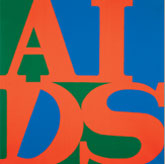With condom use as one of the most basic and important factors in
HIV/AIDS reduction it is important anything that stands in the way of
condom use be addressed immediately, most importantly intravenous drug
use (IDU). While HIV diagnoses due to IDU in New York City declined by
36% between 2004 and 2005, IDU still accounts for 7% of NYC HIV
diagnoses and 15.4% of NYC AIDS diagnoses in 2005.[i]
HIV transmission in IDU occurs when multiple people use one needle,
making needle exchange programs one of most important tools in reducing
IDU HIV/AIDS. Data shows that needle exchanges do not promote drug use
and are between 33% and 70% effective against HIV incidence.[ii]
New York State has already begun to take action with the Expanded
Syringe Access Demonstration Program, passed by the state legislature in
2000. ESAP allows for the sale of ten needles and syringes at a time to
people over the age of 18 at registered pharmacies and health care
centers.[iii]
However pharmacies are not allowed to advertise the needles, one of many
regulations that control needle exchange programs. New York City needs
to take further action to make sure that needle exchange programs do not
discourage use and that the need exchange programs continue to expand.
[i]
NYC DOHMH HIV Epidemiology Program 2nd Semiannual
Report. Vol.1, No.2. October 2006.
[ii]
Valhov D, Junge B. The role of needle exchange programs in HIV
prevention. Pub Health Reports 1998;113(Supp
1):75-80.
|
